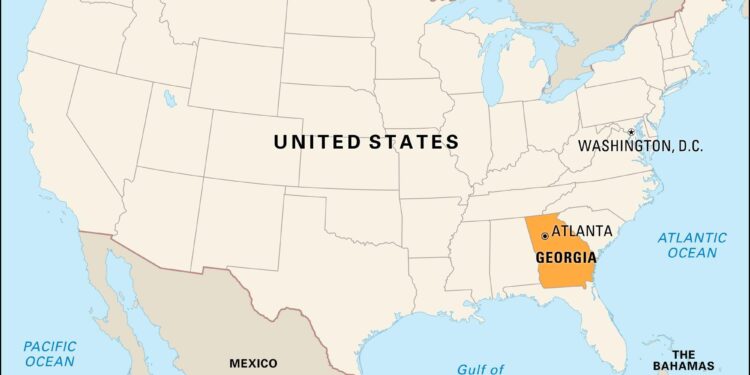Once hailed as a beacon of democratic progress in the post-Soviet space, Georgia has in recent years witnessed a disconcerting retreat from its earlier political gains. From vibrant elections and robust civil society activism to growing concerns over governmental overreach and erosion of judicial independence, the country’s journey reflects a broader regional trend toward autocratic consolidation. This article examines how Georgia, once at the forefront of democratic reform, has found itself on the precarious front lines of authoritarian resurgence – a shift with profound implications for its citizens and the international community alike.
Georgia’s Democratic Rise and the Erosion of Institutional Checks
Once hailed as a beacon of democratic progress in the post-Soviet space, Georgia’s political landscape has shifted dramatically. The nation’s early strides toward transparency and civil liberties have been undermined by a consolidation of power within the executive branch. Key independent institutions, including the judiciary and electoral commissions, have faced increasing political interference, dismantling essential safeguards designed to prevent authoritarian overreach. This growing concentration of authority has sparked widespread concern among international observers and domestic watchdogs alike.
Signs of institutional decline are evident in several critical areas:
- Judicial independence eroded by politically motivated appointments and pressured rulings.
- Media freedom
- Electoral integrity
| Institution | Status in 2010 | Status in 2024 |
|---|---|---|
| Judiciary | Highly independent | Politicized and compromised |
| Media Outlets | Pluralistic and diverse | Consolidated under pro-government entities |
| Electoral Oversight | Transparent and robust | Opaque with diminished powers |
The Role of Media Suppression and Political Intimidation in Undermining Free Elections
In recent years, Georgia’s democratic institutions have been plagued by an orchestrated campaign of media suppression and political intimidation designed to erode public trust and weaken electoral integrity. Independent news outlets have increasingly faced targeted raids, licensing revocations, and smear campaigns that limit access to diverse viewpoints. The chilling effect on journalists has resulted in self-censorship and a narrowed political discourse, effectively silencing opposition voices before they can reach the electorate. This systematic control of information channels dismantles the fundamental pillars of transparency crucial to free and fair elections.
Simultaneously, opposition parties and civil society groups report pervasive harassment, ranging from legal prosecution on politically motivated charges to orchestrated street violence. These tactics exacerbate fears and curtail political participation, tipping the playing field in favor of the incumbent power. Key indicators of these methods include:
- Selective application of laws to disqualify or imprison opposition candidates
- State-sponsored surveillance targeting activists and journalists
- Coordinated misinformation campaigns aimed at delegitimizing dissent
- Restriction of public assembly through bureaucratic hurdles and intimidation
| Year | Reported Intimidation Incidents | Media Outlets Shut Down |
|---|---|---|
| 2020 | 35 | 4 |
| 2021 | 48 | 7 |
| 2022 | 62 | 5 |
| 2023 | 58 | 3 |
Recommendations for Restoring Democratic Norms and Strengthening Civil Society in Georgia
Restoring Georgia’s democratic fabric requires a multi-dimensional approach centered on transparency, accountability, and robust citizen engagement. Strengthening institutions like the judiciary and electoral bodies with concrete safeguards against political interference is paramount. Empowering independent media outlets by ensuring protection from censorship and economic pressures can foster a healthier public discourse. Civil society organizations must be supported through streamlined legal frameworks and direct funding mechanisms, enabling them to operate freely and act as a critical check on government power. Additionally, fostering inclusive dialogue between political factions and grassroots movements could ease polarization and build consensus on democratic reforms.
Effective reforms could be guided by practical benchmarks outlined in the table below, illustrating key priorities in governance and civic participation. Civic education initiatives aimed at youth and marginalized communities can cultivate a culture of accountability and democratic values from the ground up. Mobilizing international partnerships that respect Georgia’s sovereignty while providing expertise and monitoring can further fortify reforms. Altogether, these measures strive not only to halt democratic backsliding but to reinvigorate a vibrant, participatory civil society that anchors Georgia’s democratic resilience.
| Priority Area | Action Item | Expected Outcome |
|---|---|---|
| Judicial Independence | Strengthen legal protections for impartial courts | Reduced political interference |
| Media Freedom | Safeguard funding and legal status for independent outlets | Diverse, unbiased reporting |
| Civic Engagement | Expand civic education programs nationwide | Increased voter participation and awareness |
| International Cooperation | Establish transparent monitoring by nonpartisan bodies | Enhanced public trust in reforms |
The Conclusion
As Georgia’s trajectory illustrates, the fragile nature of democratic progress remains a pressing concern in regions long viewed as beacons of reform. The country’s shifting political landscape underscores the challenges faced by emerging democracies under pressure both from internal power struggles and external influences. Moving forward, the international community’s engagement and Georgia’s commitment to upholding democratic norms will be crucial in determining whether the nation can reclaim its role as a leader in democratic development or continue down the path toward authoritarian rule.
















